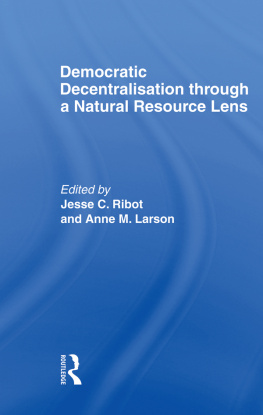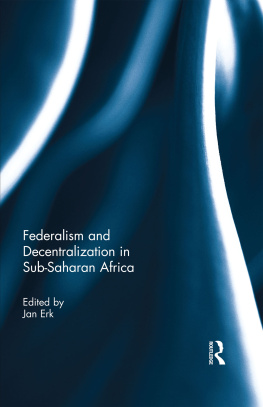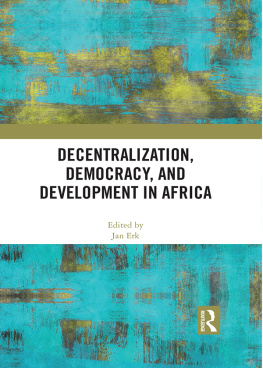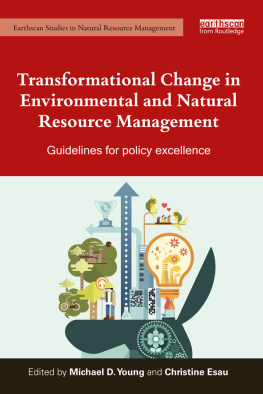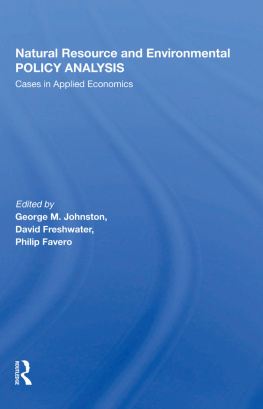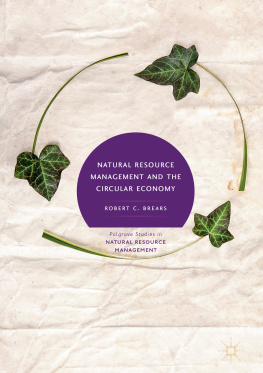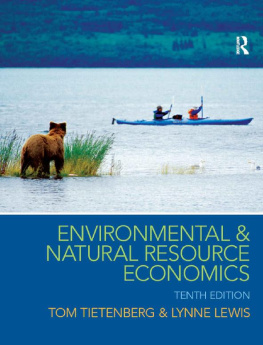DEMOCRATIC DECENTRALISATION THROUGH A NATURAL RESOURCE LENS
Since the mid-1980s, most developing countries have launched decentralization reforms. But what is taking place in the name of decentralization? Is the discourse on decentralization being codified in law? Are the laws being translated into practice? What are the effects of the reforms that are taking place? Natural resource decentralizations provide powerful insights into these questions. Because of their significance to local people, natural resources are also key to the success of decentralization reforms.
This book queries the state and effect of the global decentralization movement through the study of natural resource decentralizations in Africa, Asia and Latin America. The case studies presented here use a comparative framework to characterize the degree to which natural resource decentralizations can be said to be taking place and, where possible, to measure their social and environmental consequences. In general, the cases show that threats to national-level interests are producing resistance that is fettering the struggle for reform. They also, however, show that even these fettered reforms can be pulled along by local demand.
Where do we go from here? Though the particular circumstances and needs vary from country to country, the authors conclude that an important first step forward would be to implement the decentralization experiment; open public dialogues with governments, development institutions, NGOs and local communities about the appropriate division of powers; build representative locally accountable institutions; and create multiple channels that grass roots movements and individuals can use to influence the authorities who wield power over them.
This is a special issue of the European Journal of Development Research.
Jesse C. Ribot is a Senior Associate in the Institutions and Governance Program at the World Resources Institute (WRI). He has conducted research on environmental justice, social vulnerability in the face of climate change and the social structure of resource access. Anne M. Larson is a Research Associate of the Center for International Forestry Research, Indonesia, and the Nitlapn Institute for Research and Development of the Central American University in Managua, Nicaragua. Her recent research has focused on decentralization and forest management and on the conflicts between environment and development in tropical agricultural frontiers.
EADI the European Association of Development Research and Training Institutes is a Europe-wide network of institutes, researchers, and students of various disciplines in the field of development studies. EADI offers facilities for the international exchange of knowledge and experience in the professional field. The association was founded in 1975 and is an independent and non-profit-making international non-governmental organisation. Its Secretariat is based in Bonn, Germany. Membership presently covers 170 institutional and 200 individual and student members in 28 European countries.
EADI's objectives are:
- to generate and stimulate exchange of information among European scientists and researchers concerned with development issues;
- to promote interdisciplinary studies on specific themes;
- to develop contacts with researchers from other regions of the world.
Members take part in thematic working groups which organise conferences, seminars, research projects and publish their results in the EADI Book Series and the EADI Newsletter. Twice yearly, EADI publishes its academic journal, the EJDR The European Journal of Development Research. Its most prominent activity is a General Conference devoted to a topical theme every three years. EADI is part of ICCDA Inter-regional Coordinating Committee of Development Associations and an active partner of CIC Centre for International Cooperation Bonn.
European Association of Development
Research and Training Institutes (EADI)
Kaiser-Friedrich-Strasse 11
53113 Bonn
Tel: +49 228 26 18 101
Fax: +49 228 26 18 103
Email: postmaster@eadi.org
www.eadi.org
DEMOCRATIC DECENTRALISATION THROUGH A NATURAL RESOURCE LENS
Edited by Jesse C. Ribot and Anne M. Larson
First published 2005 by Routledge
2 Park Square,
Milton Park,
Abingdon,
Oxon OX14 4RN
Simultaneously published in the USA and Canada
by Routledge
270 Madison Ave, New York, NY 10016
Routledge is an imprint of the Taylor & Francis Group
Transferred to Digital Printing 2009
2005 Routledge
Additional material in this book edition typeset in Europe
by the Alden Group, Oxford
All rights reserved. No part of this book may be reprinted or reproduced or
utilised in any form or by any electronic, mechanical, or other means, now
known or hereafter invented, including photocopying and recording, or in
any information storage or retrieval system, without permission in writing
from the publishers.
British Library Cataloguing in Publication Data
A catalogue record for this book is available from the British Library
Library of Congress Cataloging in Publication Data
A catalogue record has been requested
ISBN10: 0-415-34786-6 (hbk)
ISBN10: 0-415-56826-9 (pbk)
ISBN13: 978-0-415-34786-0 (hbk)
ISBN13: 978-0-415-56826-5 (pbk)
Publisher's Note
The publisher has gone to great lengths to ensure the quality of this reprint
but points out that some imperfections in the original may be apparent.
CONTENTS
Dr. Nyangabyaki Bazaara passed away in August 2003 after a severe bout of malaria. Bazaara, as he was known to friends and colleagues, participated with the other contributors to this volume in the February 2002 meeting in Bellagio, Italy, on Decentralization and the Environment. He drafted an essay for this volume, which he never completed and we are thus unable to include here. We will work with Bazaara's colleagues in Uganda to complete his essay for publication elsewhere.
Bazaara was Director of the Centre for Basic Research in Kampala, Uganda. He was the leader of the Uganda research programme on 'Decentralisation and the Environment' which was part of the Africa-wide comparative-research effort that fed into the Bellagio meeting from which the contributions in this volume were selected. Bazaara's ideas and his spirit can be felt throughout this volume. Bazaara was a thinker and scholar, a musician, patron of the arts, positive-spirited man and a mentor to many. He remains present among us through all those he has touched with his generosity, kindness, enthusiasm and intelligence. This volume is dedicated to his memory.
ANNE M. LARSON and JESSE C. RIBOT
I. INTRODUCTION
Decentralisations have taken place around the world over the past century [Ribot, 1999]. Since the mid-1980s, however, decentralisation has become a truly global movement, affecting most developing countries [UNCDF, 2000: 511; World Bank, 2000; Totemeyer, 2000; Dillinger, 1994; Therkildsen, 1993; Fisher, 1991]. Governments have decentralised for multiple politicaleconomic, social and ideological reasons, and often with the support and pressure of aid agencies [Ribot, 2002b]. At least 60 countries now claim to be decentralising some aspect of natural resource management [Agrawal, 2001]. The language of decentralisation has changed in this most recent set of reforms [

